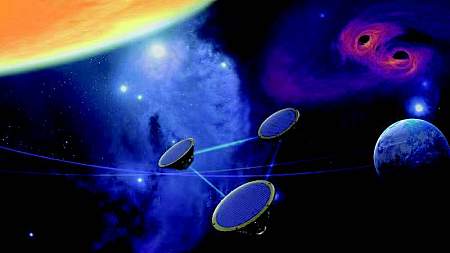Abstract
The Hubble parameter is one of the central parameters in modern cosmology, which describes the present expansion rate of the universe. Their values inferred from the late-time observations are systematically higher than those from the early-time measurements by about 10%. To come to a robust conclusion, independent probes with accuracy at percent levels are crucial. Gravitational waves from compact binary coalescence events can be formulated into the standard siren approach to provide an independent Hubble parameter measurement. The future space-borne gravitational wave observatory network, such as the LISA-Taiji network, will be able to measure the gravitational wave signals in the Millihertz bands with unprecedented accuracy. By including several statistical and instrumental noises, we show that within 5 years operation time, the LISA-Taiji network is able to constrain the Hubble parameter within 1% accuracy, and possibly beats the scatters down to 0.5% or even better.
 |  |
 |  |
DOI: 10.1093/nsr/nwab054
https://academic.oup.com/nsr/advance-article/doi/10.1093/nsr/nwab054/6207944
National Science Review





